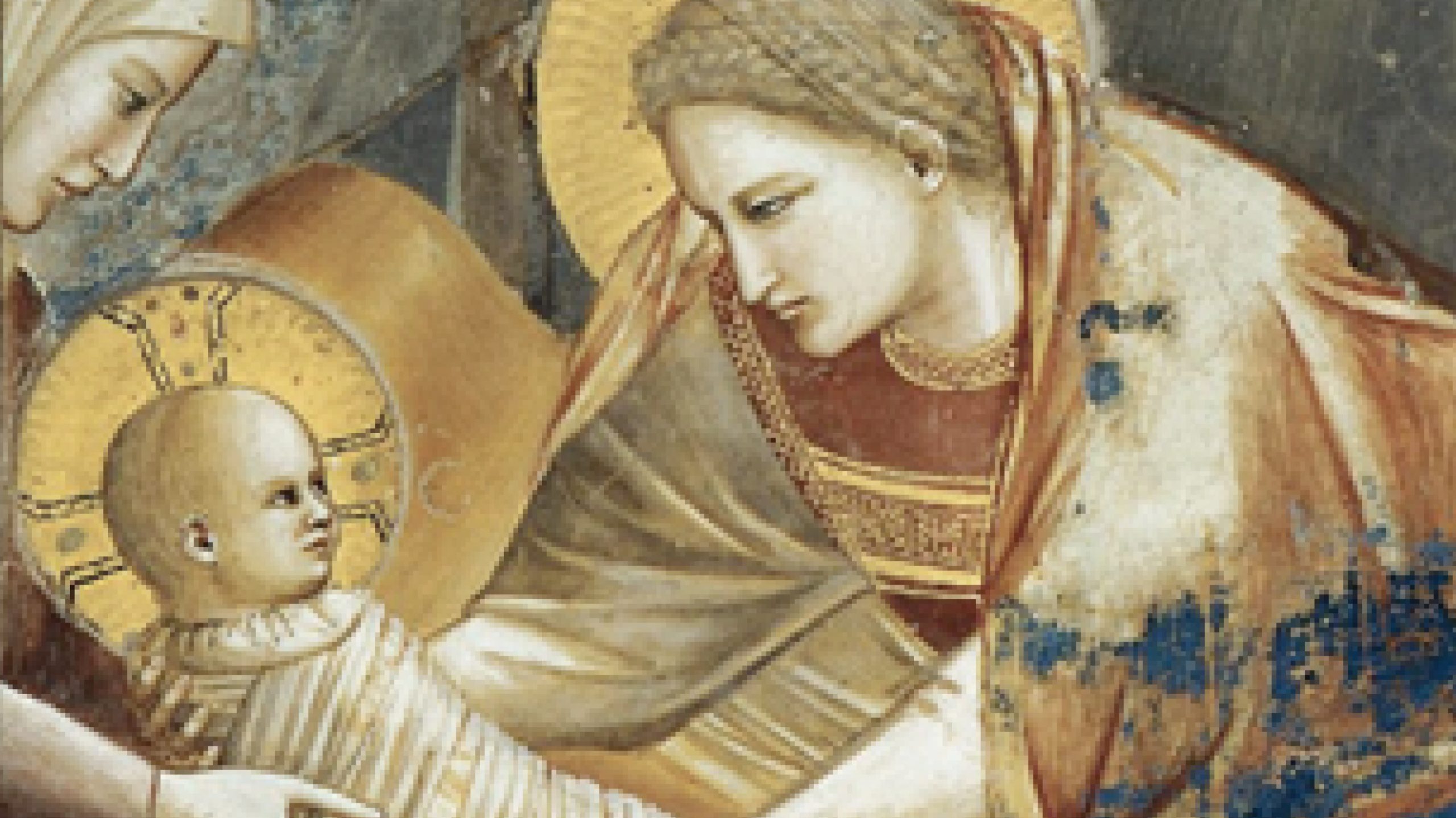How Things Change: Shifting Identities and Perceptions in Medieval and Early Modern Italy

Giotto, Nativity, detail. Scrovegni Chapel, Padua, Italy. | The Virgin Mary looks at her newborn child, Jesus, as he looks back at her. We see here the inception of art as expression not just of traditional sacred story, but of human consciousness as experience of a fully embodied identity, a coming together of intelligence, emotions, intuitions and sensations.
This is a course that aims at blending the visual and the literary arts that flourished in the Italian peninsula from the Middle Ages to the Renaissance. We will follow a chronological order, moving from Dante, Petrarch and Boccaccio to Pico, Machiavelli and Castiglione, from Giotto to Leonardo.
We will also pay attention to where these art forms occurred geographically, as different centers of patronage became prominent at different moments in time. We will therefore look at Palermo and Sicily during the 12th and 13th centuries, Florence and Tuscany from the 13th to the 16th, Milan-Venice in the 15th and 16th; finally, approaching the Rome of the Renaissance will also give us the opportunity to look at her ancient, classical heritage.
We will read excerpts from some of the major texts that were produced in these various areas, and familiarize ourselves with the evolution of the visual arts.
If you are planning a trip to Italy at some point in the future, don’t miss this course! Decisions on where to go, where to stay and which wines to taste will rest on your organizational skills; but, having taken this course, you will know all the ins and outs necessary to plan a culturally exciting journey and decide for yourselves which regions’ cultural identities are closer to your interests.
Language of instruction: English
Instructor: Dr. Daniela Boccassini
Prerequisites: No prerequisites
Coming soon!
Required texts:
There are no required books to buy. Required texts are available online, or will be made available via Canvas.
Selections from the following Primary Texts (either excerpts in PDF or available online):
— Dante, Vita nuova +The Divine Comedy.
— Boccaccio, Decameron.
— Petrarca, Canzoniere and other works.
— Pico della Mirandola, On the Dignity of Man.
— Machiavelli, The Prince.
— Castiglione, The Courtier.
Recommended texts:
Kaborycha, Lisa. A Short History of the Italian Renaissance. Routledge 2024 (online access via UBC library).
Schneider Adams, Laurie. Italian Renaissance Art. Taylor and Francis, 2014 (online access via UBC library).